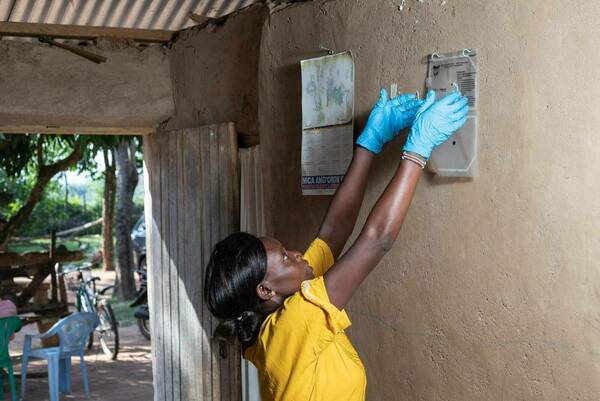ND Expert Arun Agrawal: The Holy Father’s vision in Laudato Si’ is both a beacon and a caution
Arun Agrawal, the Pulte Family Professor of Development Policy at the Keough School of Global Affairs and inaugural director of the Just Transformations to Sustainability Initiative, focuses his research on environmental politics, sustainable development, community-based conservation and transformative change. Agrawal considers the Holy Father’s vision as described in his encyclical Laudato Si’ as being both a source of direction and inspiration for how we can work together to make lasting, meaningful change in our world, and a warning for what could happen if we don’t.
“The Holy Father gave all humanity — indeed, all of the planet — a way to create a better world, helping us advance a vision of connectedness and community as being essential ingredients for discovering meaning and purpose,” Agrawal said.
But, added Agrawal, Pope Francis’ “vision about the inherent dignity of each and all humans is simultaneously a beacon for those who care for a just and sustainable future and a caution for those who see the world transactionally.”
Agrawal believes that the best available science and our innermost convictions tell us that transformative change for sustainability requires adjustments in thought, structure and action, but that these all must remain consistent with the guidance from Pope Francis.
“The Sustainability Initiative at Notre Dame, as imagined and elaborated by the University’s leadership, is deeply aligned with and inspired by Laudato Si’ and its vision of integral ecology,” Agrawal said.
Going forward, the initiative will seek to transform how students and faculty at Notre Dame engage with sustainability research and practice, as well as alter the field of sustainability itself through high-impact research and knowledge creation, curricular innovations and global engagement.
Originally published by at news.nd.edu on April 21, 2025.
Latest Research
- NSF Cyber SMART’s fall meeting shapes fifth year of project, legacy and future plans, and adds new memberThe U.S. National Science Foundation (NSF) Cyber SMART center gathered for its fall meeting on the University of Notre Dame campus this September. The meeting served as a checkpoint with progress reports and new projects from research leads and students…
- Slavic and Eurasian studies professor wins Humboldt fellowship to research how Russia’s religious past shapes its presentWhen Russia invaded Ukraine on Feb. 24, 2022, Sean Griffin realized his second book needed a new title. Griffin, an associate professor in the University of Notre Dame’s Department of…
- Notre Dame’s R.I.S.E. AI Conference builds interdisciplinary collaboration to inform human-centered artificial intelligenceAs artificial intelligence (AI) transforms nearly every sector of society — from healthcare and education to governance and global development — a critical question emerges: How can we conscientiously design and deploy these powerful technologies to positively impact society? This…
- University of Notre Dame joins the Global Coalition of Ukrainian StudiesThe University of Notre Dame has joined the Global Coalition of Ukrainian Studies after signing a Memorandum of Cooperation (MOC), formalized on September 24, 2025, at the Ukrainian Institute of America in New York City. Notre Dame joined four other American…
- The University of Notre Dame’s Mendoza College of Business and Industry Labs team up to inspire national security manufacturing competitiveness in the regionThe South Bend - Elkhart Region is full of manufacturing companies that are poised to grow, and Executive Master of Business Administration (EMBA) and Master of Business Administration (MBA) students at the University of Notre Dame are finding innovative ways to contribute to that growth. Earlier…
- Notre Dame research informs WHO conditional recommendation for spatial repellents in malaria vector controlThe World Health Organization (WHO) recently announced a “conditional recommendation” for spatial emanators, also known as “spatial repellents,” in the fight against malaria. This key determination was informed by spatial repellent studies that included the Advancing Evidence for the Global Implementation of Spatial Repellents (AEGIS) Project in Kenya, led by the University of Notre Dame and funded by Unitaid. The findings from this particular study were recently published in The Lancet.













